ONE. On January 7, 2008 Lam Luong murdered his children, tossing them one by one from the crown of the Dauphin Island Bridge into the Mississippi Sound, south of Mobile, Alabama.
One hundred six feet from the deck to the water. Blunt force trauma and asphyxia from drowning.
The currents drifted the bodies west.
The two boys were recovered first — Ryan, aged three, by oystermen in Bayou La Fourche Bay, and Danny, an infant, only four months old, by duck hunters near Point Aux Pins. Lindsey, aged one, was found near Pascagoula. Hannah, aged two, was finally pulled from the water in coastal Louisiana, 144 miles away, near the mouth of the Mississippi River.
Several islanders, passing back and forth, saw Lam Luong and his children at the top of the bridge that morning. One man feared Luong was a jumper. Another thought the van had broken down. A third assumed Luong was throwing bags of garbage over the rail, and slowed down to tell him off, but then, seeing kids in the van, drove on, wanting to avoid a potentially angry confrontation in front of children. He remembered especially one of the girls, still in her car seat. She smiled as he passed.
Later, at Luong’s trial and then sentencing for capital murder, the lead police investigator offered as testimony a video of himself recreating the crime, of four sandbags, matched to the weight of each child, thrown from the bridge into the water, the video accompanied by an in-court primer on the velocity of descending objects, and allowed by the court for the jury to appreciate more fully the atrocity, the special cruelty, under consideration.
The same investigator told also of the days immediately following the murders, of Luong’s claims of ignorance and innocence, of handing off the children to strange women in Gulfport or Biloxi, until at last he admitted the four were dead, and when asked where they could be found, directed the police to the bridge.
The officer, incredulous, asked Luong, “Do you mean to tell me you threw your four children off the top of the Dauphin Island Bridge?” and then, even after Luong answered yes, asked him again, “You killed your children by throwing them off the Dauphin Island Bridge?” — in his own words “not fathoming” what he was being told, what Luong was admitting; the fathom, of course, being the customary measure of deep water, the span of a man’s arms outstretched from hand to hand — the embraceable, as it were — and so also a figurative measure for the capacities of the human heart, of madness, malice, or even joy, but here still falling short: 106 feet from the deck to water.
TWO. Christianity is a true crime religion. At its heart are scandal, treachery, and murder. Strange to think that we the people would ever turn away from Jesus Christ, and Him crucified, given the proclivities, the bloody entertainments, so beloved in this bloody land.
On the one hand, the Good God of the Universe — the Three-In-One, the One-In-Three, Maker and Destroyer of Worlds — condescended to shame among His creatures, with a brow to welcome thorns, with hands that did embrace the violence of the nail…
In opposition, the peril implied by man as a rational creature, by the gift of love, that if it be real it must be free, and so must hold within itself the possibilities of rejection — the heart of man become not a temple but a void, the sensible become senseless, become welter and waste.
Picture in this regard, as emblematic, not only Lam Luong himself, but our old comrade Lee Harvey Oswald, he of “unlimited aspirations and extremely limited talents,” perhaps at his apartment in Minsk in 1961, a glorious, dyslexic defector struggling through his Dostoyevsky, whose Soviet descendants were so ill-suited for a world of progress and efficiency, for the New Frontier, they found themselves in Cuba in 1962 trying to hide ballistic missiles under palm trees.
Picture young Lee endeavoring to discern his own surely spotlit days:
“And where did these sages pick up the notion that man must have something that they feel is a normal and virtuous set of wishes,” good Fyodor wrote, remembering no doubt Saint Paul in Romans, chapter seven, “what makes them think that man’s will must be reasonable and in accordance with his own interests? All man actually needs is independent will, at all costs and whatever the consequences.”
And so, we live suspended — as though hung upon a cross — between two mysteries, between the Almighty and our equally unfathomable selves. It is at once a name revealed and something like the refusal of a name, as our Catechism teaches. Whichever way we turn we’re confronted by the insoluble.
Yet still we struggle to know what we can, to arrange and rearrange memory and language for the sake of story, scouring the strand for secrets tossed up by the churning of deep waters. In this effort, when it comes to the mysteries of God and man, we’re perhaps better served by a deliberately discursive approach, gravitating to the random and the nonsequential, to paraphrase Joan Didion, she who despaired of “the imposition of the narrative line,” yet went on to write beautifully crafted prose imposing just that. Her own life and writing could serve as our guide in this respect — a California girl as sign and symbol — as good a guide as any for slouching toward Bethlehem, ha-ha… but for the sake of our peculiar narrative, and not just for purely tribal reasons, mind you, we’ll choose instead another writer with whom to journey on the bloody mystic road, choose instead Jack Kerouac — specifically, Jack Kerouac drunk on television, on Firing Line with William F. Buckley Jr., September 1968.
THREE. “The topic tonight,” Buckley explained, “is the Hippies, an understanding of whom we must, I guess, acquire, or die painfully.” Kerouac invited as progenitor, or prophet, however reluctant, of the mise-en-scène, a writer whose work “seemed to be preaching a life of disengagement, making a virtue of restlessness,” but that night, on the set, in his cups, looking more like a middle-aged tire salesman or the manager of a used-car lot, looking a lot like Lowell, his hometown — a rambling, grumbling, fleshy, red-faced fool.
Alongside Kerouac, two other guests — Lewis Yablonsky, a prominent sociologist, and Ed Sanders, a writer and musician and representative member of the counterculture, a genuine longhair — both men clearly troubled by Kerouac’s condition but forging ahead, dutifully, nonetheless, discussing LSD, Vietnam, Madame de Gaulle, communes, the Democratic National Convention, and even the propriety of hippies phoning the police for help in times of trouble, all the while Buckley deftly poking holes… but Kerouac, o mon pauvre Ti Jean, voice of a generation, barely a year away from his own death, from eighteen bleeding hours at the Catholic hospital in Saint Petersburg — “excessive ethanol intake,” the death certificate read, “many years” — poor Jack could only snarl, and snort, and interrupt, sharing his mother’s nonsense song for Hubert Humphrey, and embarrassing himself with non sequiturs about hoodlums, communists, and Spiro Agnew.
The camera cut occasionally to the poet Allen Ginsberg watching from the audience, face composed but clearly tense, his heart seemingly resigned to the spectacle, the suffering — I saw the best minds of my generation destroyed by madness — as Kerouac insulted him from the stage and started in on settling scores with those who sought to cast him as some sort of figurehead or propagandist for the tumult of the time, those who “turned the idea that I had,” he said, “that the Beat Generation was a generation of beatitude, and pleasure in life, and tenderness… but they called it the Beat Mutiny, the Beat Insurrection, words I never used… being a Catholic. I believe in order, tenderness, and piety.”
For Kerouac, it was the worst of all possible scenarios — he’d become a writer whose work in some sense no longer need be read. For even if Buckley was kind enough to mention Vanity of Duluoz, Jack’s latest and, as Buckley touted, “widely regarded as his best,” everyone knew Kerouac was there for On the Road and nothing else, for what the New York Times in 1957 called “a major novel… a historic occasion… the most beautifully executed, the clearest and the most important utterance yet made by the generation Kerouac himself named years ago as ‘beat,’ and whose principal avatar he is,” a work the very success of which drove Kerouac past fame and influence and into outright decay, and so brought him to Buckley’s stage that night not as an American writer of importance passing into timelessness, but as a writer in need of explanation, in need of sociology — what an insult, even if unintentional, certainly unintentional, right?
And so angry, yes, at having to share the stage — but a drunk doesn’t need an excuse, not really. The maudlin parade comes naturally. Petulance, too. The cheap complacency of the bottle. All hail the gods of grape and grain.
“Kerouac is out of style,” the sociologist Yablonsky offered, to the laughter of the crowd in that Year of the Pig, 1968: “He’s still on alcohol.”
FOUR. We left New Hampshire and moved to the island in the summer of 2015, seven-and-a-half years after the murders — just as Abraham rose and drove his flocks toward Canaan land, we simply gathered up our children and our possessions, and headed south. So began the part of our lives you could call our life on the road. When people asked why we came to Alabama I lied and told them I was writing a book.
I described the corpus of literature associated with small islands, about the Durrels, Douglas, Huxley, Stevenson, Bioy Casares and all the rest. I pointed out that no writer had ever profitably done the same for our island — only fourteen miles long from end to end, drifting with the wind and waves at the mouth of Mobile Bay — that the natural history and human culture of the place were overlooked, and untouched… though the stories, even in brief, were certainly worthy of a wider audience.
When a French expedition, led by Pierre Le Moyne, Sieur d’Iberville, explored the island in 1699, they found, scattered in the sand on the far western shore, an immense, jumbled pile of human and animal bones. These were likely what remained of an old native Mauvila burial mound, dispersed by a passing storm. In his travels through the region in the late eighteenth century, the naturalist William Bartram wrote of similar mounds among the Choctaw, of their care and reverence for the dead — corpses exposed upon scaffolds, left until putrefied, the flesh then stripped from the bones, the bones washed, dried, and kept until their number was great enough to be stacked together and covered over with dirt.
The French, though, knew nothing of these customs, not yet, and thought instead they stumbled upon the aftermath of some great and terrible slaughter. Uncomprehending, afraid, and far from home, they named the island accordingly: Isle Massacre, Massacre Island.
Accompanying Iberville on his journey was a younger brother, Jean Baptiste Le Moyne, Sieur d’Bienville, the founder, in later years, of both Mobile and New Orleans. Enigmatic and driven, Bienville would soon establish close ties to the natives of the region, even going so far as to have his body tattooed, as theirs were, with images of rattlesnakes, serpents à sonnette. It’s said the natives were fond of him, but also afraid, though the sources never detail their reasons why.
Before the French were the Spanish conquistadores of the sixteenth century, and Isabella Bobadilla, daughter of Predrarias Dávila, who executed Balboa, and so called for this and his other cruelties in the New World Furor Domini, the Wrath of God. Isabella married Hernando de Soto, and is said to have waited on the island as her husband famously pillaged the Indian lands of the mainland. She planted a garden, including fig trees, near the shell middens on the northern shore, and while digging there found another cache of broken human bones — the marrow sucked clean on these — guarded by a carved stone idol of great ceremonial import and unknown power. In 1542, upon receiving word of her husband’s death from fever somewhere on the banks of the Mississippi River, she purportedly buried all her gold and jewels deep in a well on the island and set sail for Cuba, never to return.
The pirate raid of 1710. The Hurricane of 1906, and Hurricane Frederic in ‘79. A woman’s body left sometime, somewhere, along the strand, a stack of silver dollars laid out neatly for whomever found and buried her. So many stories to choose from, and share, and sooner or later I would see, in the eyes of my interlocutor, an unspoken but welcome Bless his heart, that curious Southern expression reserved as condemnation for the feeble and the failed. Welcome, because it meant the substance of their question was avoided, lost in a storm of words… because the truth was I had no clear sense of why we came to the island, only that we had to get away from where we were from — get out on the road, so to speak — and if that happened, perhaps the rest would fall into place.
Because a man with a family, a wife and children, can’t talk about such things, not politely. I certainly couldn’t mention my growing sense of déjá visité, starting as soon as we came across the bridge, catching our first glimpse of the gas platforms out in the Gulf, and watching the pelicans fly low over the water:
I know this place… I know myself in this place…
…and with that recognition, however absurd, an illimitable ache, just as Adam must have felt (after having named the animals, from the serpent to the dove) when first presented with the woman created as his helpmate — this one at last is bone of my bones, and flesh of my flesh.
FIVE. Before we left New England, I visited Kerouac’s grave in Lowell, with a priest friend and a couple of the children in tow. While Father prayed the rosary and the children wandered back and forth among the headstones, in the sunshine, careful to keep quiet as they’d been told, I stood at the edge of the plot in wearied silence, unsure of what to say or do, or even pray, all of it ashes and dust in that moment, thinking of Kerouac’s books, seeing his headstone laid flat in the sun-scorched grass — “He Honored Life” — and so all I did, in the end, was leave a prayer card of Our Lady of Sorrows I found tucked inside my wallet. Nearby stood a statue of Passaconaway, great sachem of the Penacook Indians. I told the children the story of his last night on Earth, when as an old, old man he was carried by wolves to the very top of the Crystal Hills, far to the north, and assumed into heaven, like Elijah, in a carriage of flame.
Afterward, downtown, at a Saint Vincent de Paul, while sorting through the junk — the glassware and cassette tapes, the faded, dingy toys — we found, rested behind a display of rotary telephones, a framed portrait of the scourged Christ. A gift from Kerouac, I knew, in exchange for the picture of Our Lady — an older writer mentoring a younger. It was handmade from what might have been a photograph, perhaps from a Passion play, cut out, pasted, and over-painted on red satin. The Lord stood, beside a pillar, on a low narrow platform, hands tied, the rope looped up and around His neck, cartoon sunflower of light above His head, radiant. Thick, luxurious auburn hair, eyes downcast, arms and legs crisscrossed in bleeding slashes. Condescended to shame among His creatures — a man on a stage, a man of sorrows, waiting. Come and see.
“Now, Jack, Mr. Kerouac,” William F. Buckley asked on television in September 1968, “To what extent do you believe that the Beat Generation is related to the hippies? What do they have in common? Was this an evolution from the one to the other?”
“I’m 46 years old, these kids are 18,” Kerouac answered, bleary-eyed, blinking, “But it’s the same movement, which is apparently some kind of Dionysian movement in late civilization, and which I did not intend, any more than, I suppose, Dionysus did, or whatever his name was. Although I’m not Dionysius the Areopagite.” He laughed, “I should’ve been!”
His eyes shone sober for a moment. The heart of the man broke through the haze, or so it seemed.
Perhaps Kerouac, who offered in his work so nakedly the arc of his own dissolution, the torment of his visions — of America and pilgrimage, his visions of the Cross… perhaps the man in his decay had passed, mercifully, beyond the cant of sociology, polite discourse, or even literature, and entered into a language of suffering where the saint could be a better friend and guide: Pseudo-Dionysius, who taught the form and balance of celestial intelligence, of angel calling unto angel, and who understood what should and can be said, and what should not, having explicated the Divine Names…
I remember a man I knew growing up. He was a lineman for the power company, good and decent by all accounts, hardworking, but then undone somehow by alcohol. He lost his job and then his family, ended up wandering around town, utterly ravaged, sometimes trying to direct traffic with his beer in hand, stinking of sweat and piss and woodsmoke, wanting to grab us on the sidewalk — even as children — telling us to “Go on up there and tell ‘em they’re nothin’ but a bunch’a mannequins! Tell ‘em they’re drivin’ too goddamned fast! I got more strength in my little finger!”
The noise and commotion had him enraged — a peculiar fixation, given the circumstances. One morning, when he couldn’t stand it any longer, he stripped off his clothes and barricaded his street with a pile of discarded toilets he’d collected — traffic backed up in both directions — then waited there, naked and bellowing, for the cops to collect him.
He was sent to county jail, and evicted from his apartment. I was ten years old. His landlord, a rich man, a lawyer, father of a girl in my fifth grade class, knowing we needed to raise money for our class field trip that spring — to see a real lighthouse on Cape Cod, to see the Mayflower and Plymouth Rock — hired us to clean out the place, a basement apartment, and unbelievably filthy: piles of trash, broken furniture, Styrofoam containers of food crusted with mold, even a stack of begrimed, outdated calendars featuring badly lit cheesecake photographs of half-naked fat women.
We tried to work, and be cheerful, but being only in the fifth grade, and mostly innocent, we never saw anything like it, and were stunned, frightened. We got quieter and quieter, lapsed into anxious silence… until suddenly someone screamed, “IT’S POOP!” We all turned to look. A boy stood over a mound of trash strewn near the front door, holding an old crutch out in front of him, and hung from the end was a pair of men’s underwear cradling a huge, black clump of shit.
But the worst of it wasn’t his underwear — it’s that this man, this drunk, his daughter was also in our class, she was there with us, seeing it all, and helping to clean it up.
I was with her when she found her father’s makeshift bedroom, just a busted wooden bedframe and a piss-stained mattress shoved underneath some stairs. He had her school portrait stapled onto the bedpost. She didn’t live with him, she lived with her mother. All he had was her picture, hung like an icon for the rising and setting of his day.
When she found it she just smiled and said, with patient surrender, “Well, that’s my dad,” reached over, grabbed it, slipped it into her pocket, and walked away.
And what could I say to her? What could anyone possibly say?
SIX. Our early time on the island was nearly paradisal. We walked through the forest and across the dunes. We sat along the shore. We swam and gamboled in roily brown waves.
I spent one of our first evenings standing outside our new home, staring up into the pines, listening to cicadas churn and drone in the high branches. I shined a flashlight into the treetops. A cicada came falling toward the light, ricocheting onto to the concrete patio where it lay, stunned. I picked it up and carried it indoors to show the children. Milky white eyes, blind eyes, that made me think of Borges, or Tiresias the prophet. The children showed me a dead centipede found hanging from a wall socket, and pale green lizards gathered on the backyard windows.
More than anything in those days, I tried to make sense of intuition.
I found an account of a woman on the island in the days before the bridge, Alabama Lamey Bosarge, called Aunt Bama, a healer of both animals and people, a prophetess of sorts, and a kinder witch, it seems, than Caliban’s dam. “There’s music in the air,” Bama told the other islanders, “One of these days you’re gonna hear it, and you won’t have to go to heaven.”
Her presentiment was echoed, curiously, in the narrative of Wallace Turnage, a young black slave who, in August 1864, upon hearing Federal troops had seized Forts Morgan and Gaines at the mouth of Mobile Bay, and occupied the island, fled south from Confederate Mobile along the western shore of the bay. He ran two dozen miles, starved and thirsty, alone, through pine woods, needlerush, and cordgrass, across three rivers — the Dog, the Deer, and the Fowl — tormented by snakes, evading all capture until, at last, at land’s end, in sight of the island, he found a final stretch of open water to contend with — the Mississippi Sound at Grant’s Pass and Pass aux Herons.
He first tried to cross balanced upright on a salvaged log, poling himself through the shallows, but lost the bottom in deeper water, barely able to withdraw safely to shore, struggling against the tide drawing him north into the bay, a sure return to slavery, or worse.
He continued to shelter there at Cedar Point six days, expectant, impatient, praying for final opportunity, for deliverance. On the morning of the seventh day he woke before dawn to a voice, a song, rising from within him in blessed ululation, guiding him to the water’s edge, a tiny boat there washed ashore for him and waiting, “like it was held,” he later wrote, “by an invisible hand.”
Certain, determined, he set out again, paddling with a broken board, floating farther and farther, closer and closer, until, seeing him overwhelmed by a sudden squall come down from the bay, a boatload of Yankee soldiers took pity, rescued him from the water, and brought him safely onto the island.
He thought he could speak his mind there, finally, as a free man, and they would listen. They would have to listen.
Don’t we all just want someone to listen?
On the island I sometimes sat out on the back steps in the heat of the day, a tremendous heat that felt as if one were being buried alive, slowly, in a drift of fine, burning sand. I sat with my guitar and tried to write but heard no songs.
The children, playing, stopped to chatter as they passed:
…daddy we finded a whip it was green on the inside i had to bring it back to the woods but i got a thorn caught on my dress my new christmas dress and sister couldn’t get it off…
During our time on the island we drove back and forth across the bridge three or four times a week, sometimes more.
We lived there over a year before anyone even mentioned the murders.
SEVEN. Before it all happened, Lam Luong worked on the shrimp boats out of Biloxi and Bayou La Batre. In 2005 the family was displaced by Hurricane Katrina, moving to Georgia, where his common-law wife, Kieu Ngoc Phan, mother of the four children, found work in a nail salon, and Luong as a hibachi chef in a Japanese restaurant. It was during this time, it seems, that Luong was undone by drug addiction, even going so far as to call 911 while giving the children a bath one evening, to turn himself in for crack possession.
They returned to south Alabama in 2007, with Luong disappearing for days at a time to smoke crack in the family minivan. Much would be made of this drug habit in the aftermath of the murders, part of the community’s desperate and unsuccessful attempt to make sense of the senseless. “There’s thousands of crack addicts out there that haven’t thrown their kids off a bridge,” the Mobile County Sheriff noted, “It’s been my experience that drugs are usually involved in some of these more bizarre crimes, but there are other things that come into play.”
Luong was born in Vietnam, the child of a Vietnamese woman and an unknown black American soldier. As a so-called bụi đời, child of dust, he lived as an outcast, and was sent away from Ho Chi Minh City by his mother at age six to stay with relatives in the countryside of the Mekong Delta. At age fourteen, he emigrated to the United States. What consequence Luong’s background had on events is difficult to know. Also unclear, as some suggest, is whether he actually planned to return alive from the bridge that morning, or if his initial impulse was to cast himself into the water after finishing with the children. Regardless, staying alive brought an extra share of satisfaction. Feeling disrespected by his wife and her family, he later said he wanted more than anything to see the look on her face when he told her the children were dead.
He also wanted to be famous, and though he certainly gathered a full measure of local infamy — packed together, shaken down, and poured into his lap — a more national celebrity eluded him. Why, in the year of Jodi Arias and Casey Anthony, were the savage contributions of Lam Luong to the murder culture of America overlooked? Perhaps, as a local attorney suggested, Luong’s background made the prospect too difficult, that a full treatment of the crime would bring up unpleasant matters of race, class, even the unresolved memory of the American involvement in Vietnam — in a word, too complicated to be sensational.
But it may be that our inattention to the crime somehow speaks to a shame we thought we’d lost, that in his brutal theatricality Lam Luong unwittingly misread his audience, and that the thought of a man tossing his children one by one from the top of a bridge was just too horrible ever to pass as entertainment, even in America.
The people of south Alabama were not so fortunate. “THE BABIES ARE SAFE IN THE ARMS OF JESUS,” a marquee sign at a church in the Bayou read. The Mobile Press-Register published a poem written by an eighteen-year-old girl in Irvington, where Luong and his family had lived: “Hush now, babies, it’s all OK, / You went home with God today, / He will hug you when you are sad, / give you a life you never had.” This elegy was followed, days later, with a news story headlined “Kids thrown from bridge all had strong personalities,” detailing with nearly unendurable pathos how Ryan organized his toys, how Hannah was “a fashionista in training,” how Lindsey especially loved her grandmother, and the “innocent smile and infectious laugh” of infant Danny.
All of this for the children, but more so for those who searched the shorelines for their bodies, who gathered in the churches and at the vigils, who struggled to make sense of the unimaginable in their midst, to defend themselves against the finality of the act, the latent possibilities at work within a human heart — and all outmatched, ultimately, by the shadow of death.
At his sentencing, Lam Luong was ordered by the judge, while awaiting execution on death row, to be shown pictures of the four children each day as punishment, for memory’s sake.
Brian Kennedy is the founder of Lydwine, as well as the frontman and principal songwriter of the arthouse country band The Cimarron Kings. He lives with his wife and six children in Guthrie, Oklahoma.
NOTES. The terrible tale of Lam Luong, as well as much of the material related to the natural history and human culture of Dauphin Island, Alabama, is derived from the vertical files kept by the Local History & Genealogy Branch of the Mobile Public Library - Quote regarding Lee Harvey Oswald’s “unlimited aspirations and extremely limited talents” is from Dwight Macdonald’s “A Critique of the Warren Report” in the March 1965 issue of Esquire - Dostoyevsky quote is from Notes from Underground as translated by Andrew R. MacAndrew (New American Library, 1961) - Joan Didion paraphrased and quoted from her essays “The White Album” and “On the Road” from her collection The White Album (Simon & Schuster, 1979) - Both video and transcript of Kerouac’s Firing Line… appearance in September 1968 are available online via the Hoover Institution Library & Archives - Details of Kerouac’s death certificate taken from Subterranean Kerouac: The Hidden Life of Jack Kerouac by Ellis Amburn (St. Martin’s Griffin, 1999) - Allen Ginsberg quoted from his poem “Howl” from Howl and Other Poems (City Lights, 1955) - Gilbert Millstein’s review of On the Road was published on pg. 27 of the September 5, 1957 edition of the New York Times - Kerouac quoted from On the Road (Viking Press, 1957) - Wallace Turnage’s escape narrative is included in David W. Blight’s A Slave No More: Two Men Who Escaped to Freedom, Including Their Own Narratives of Emancipation (Houghton Mifflin Harcourt, 2007).


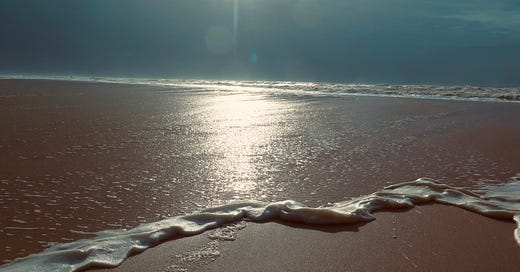




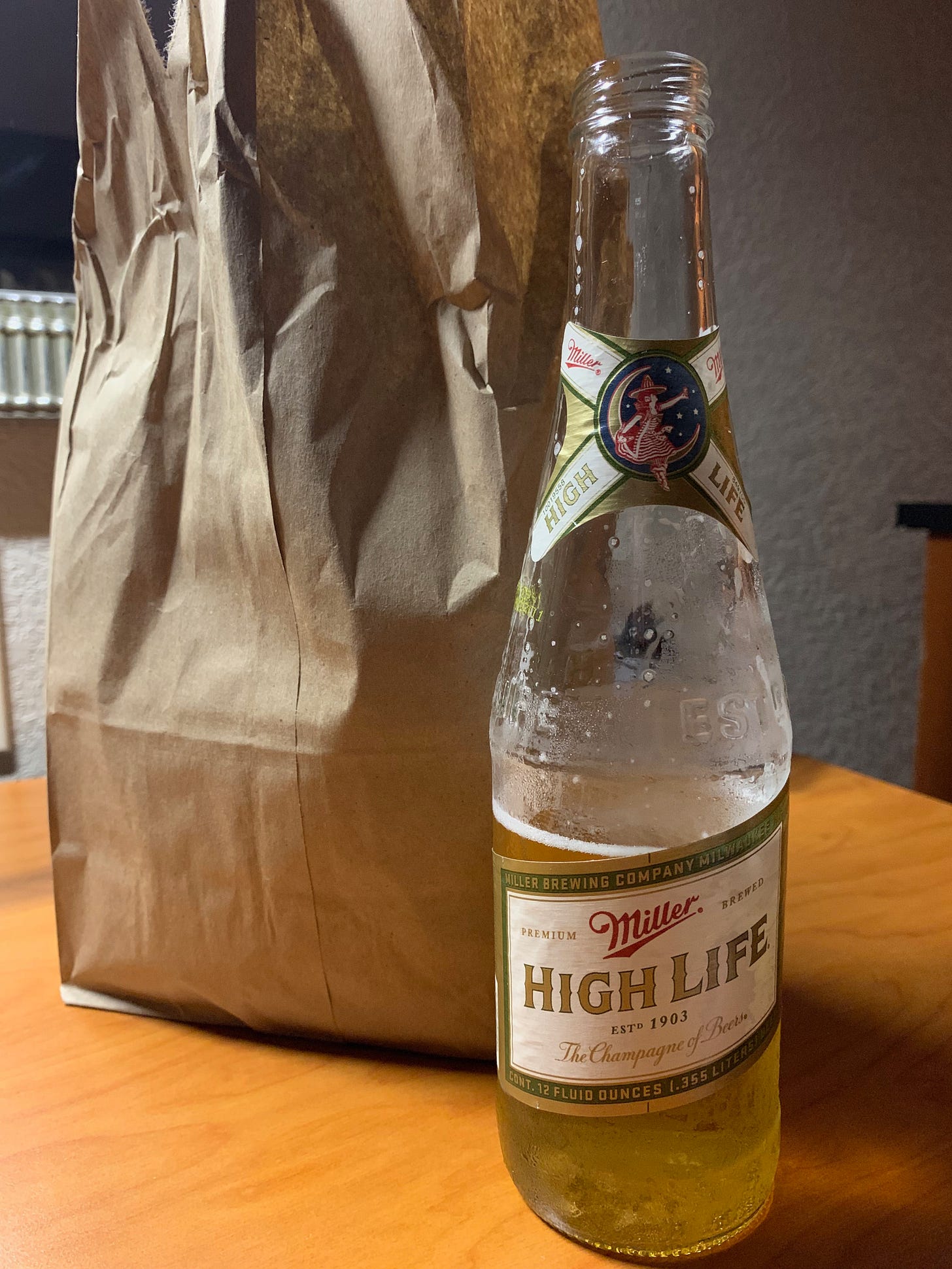
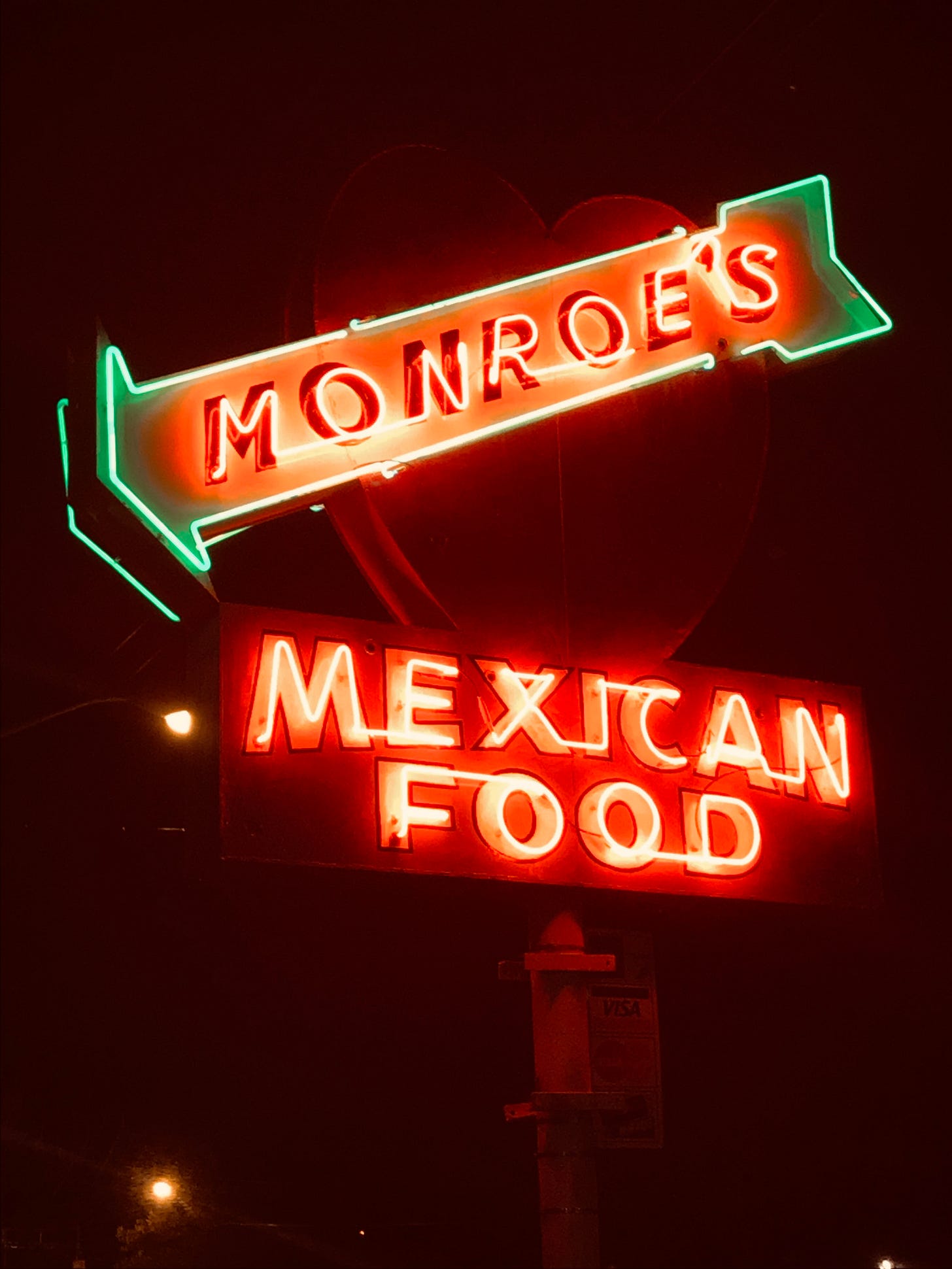
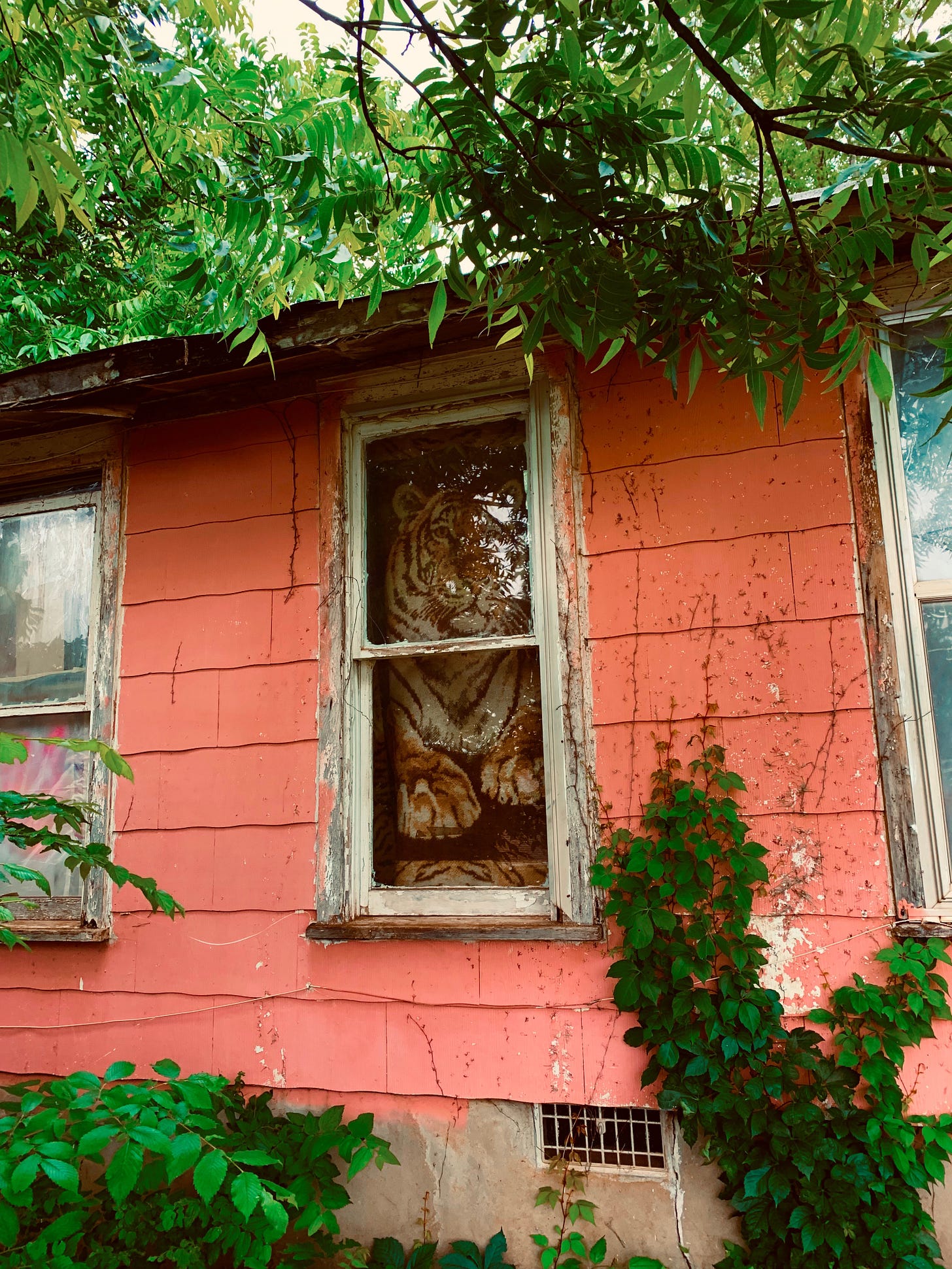
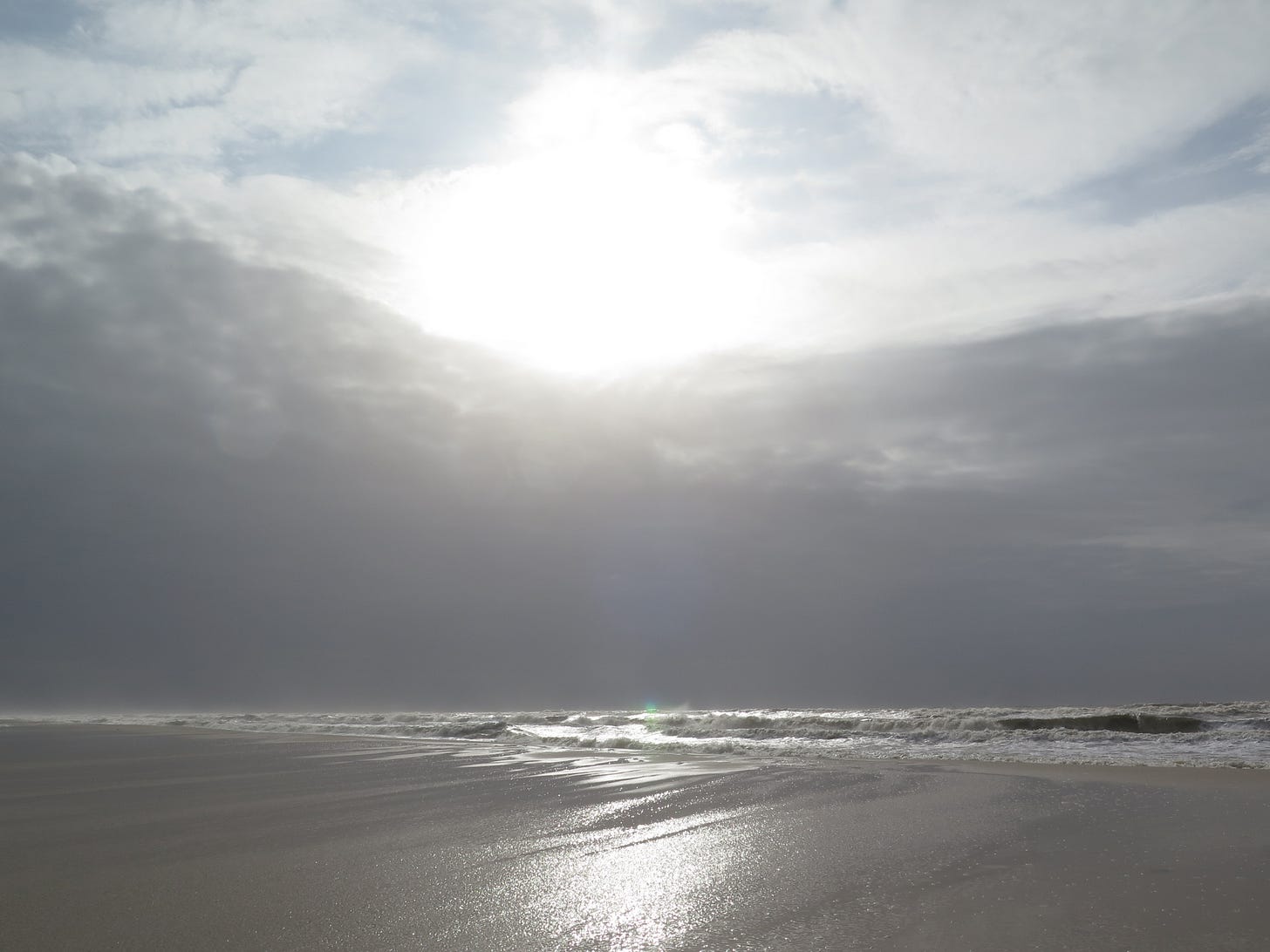

I'm certainly interested to see where you're going with this. The writing is marvelous.